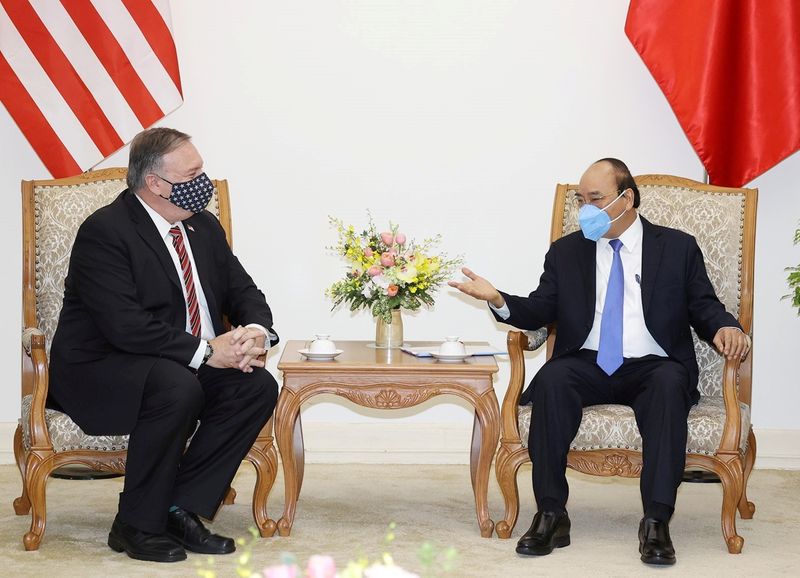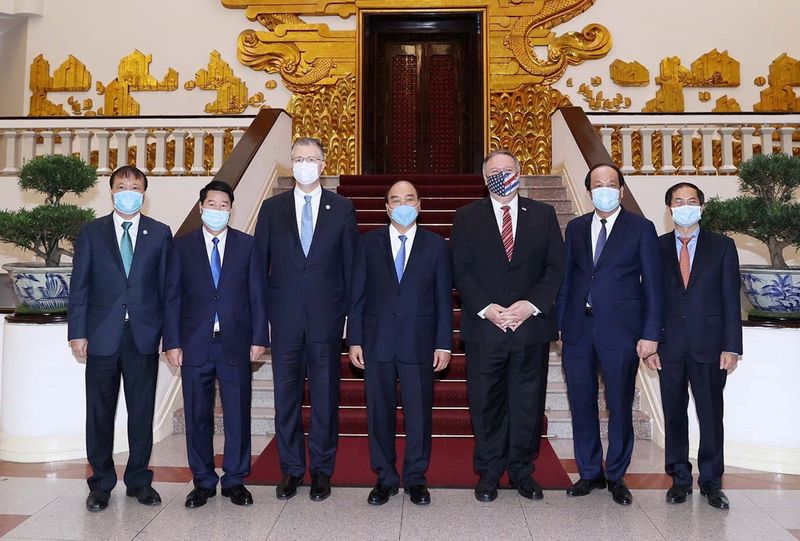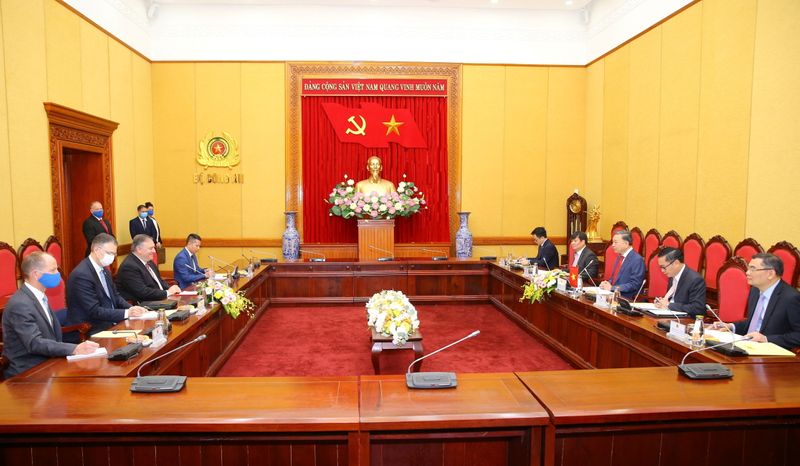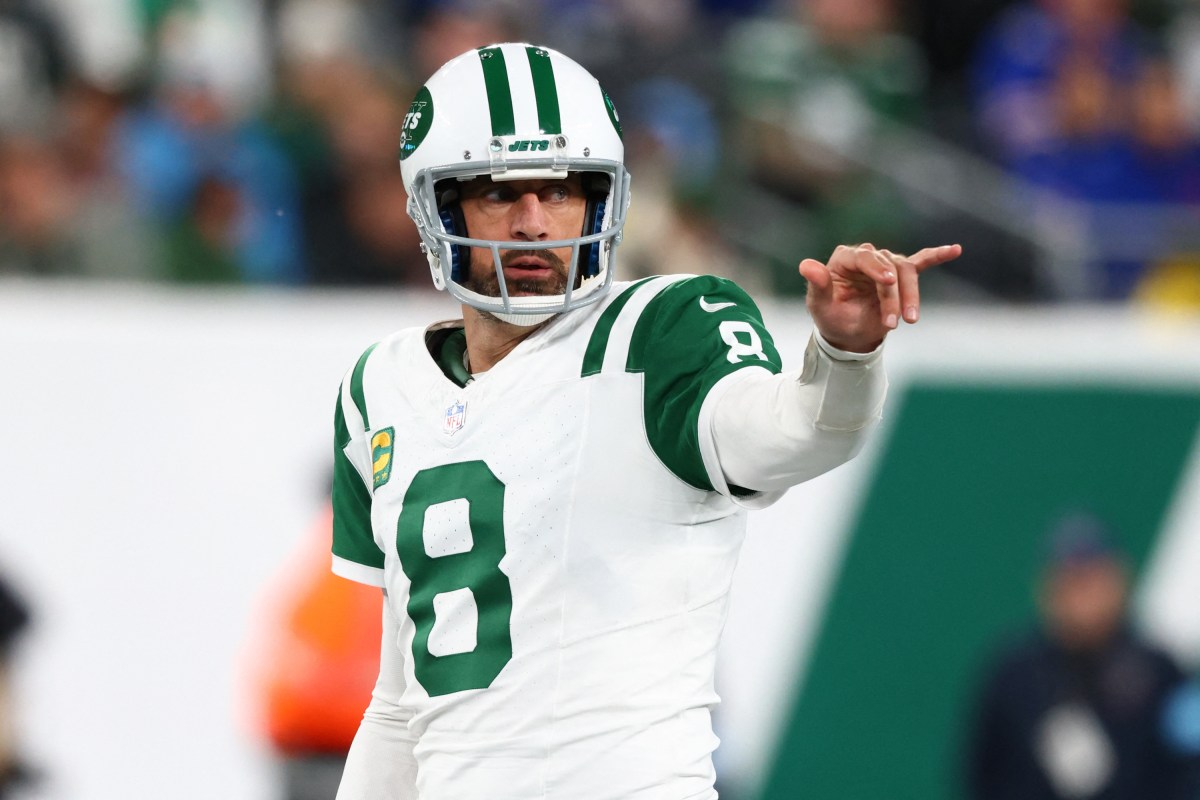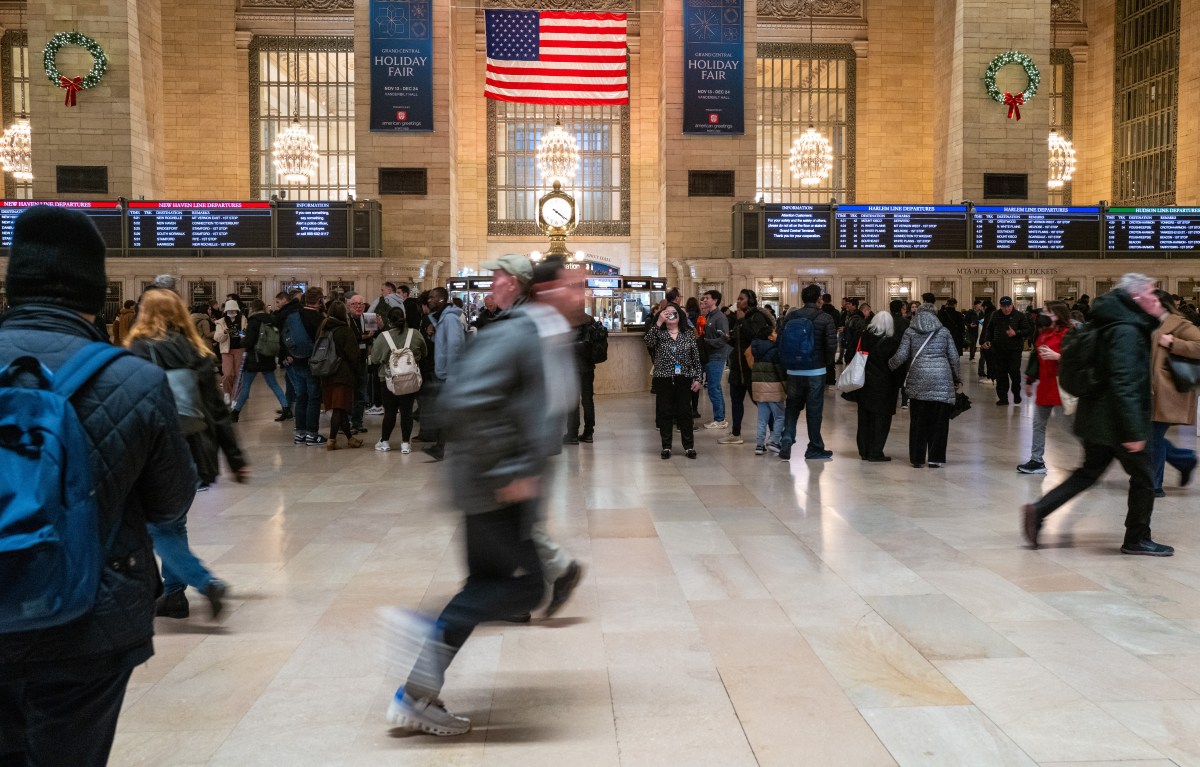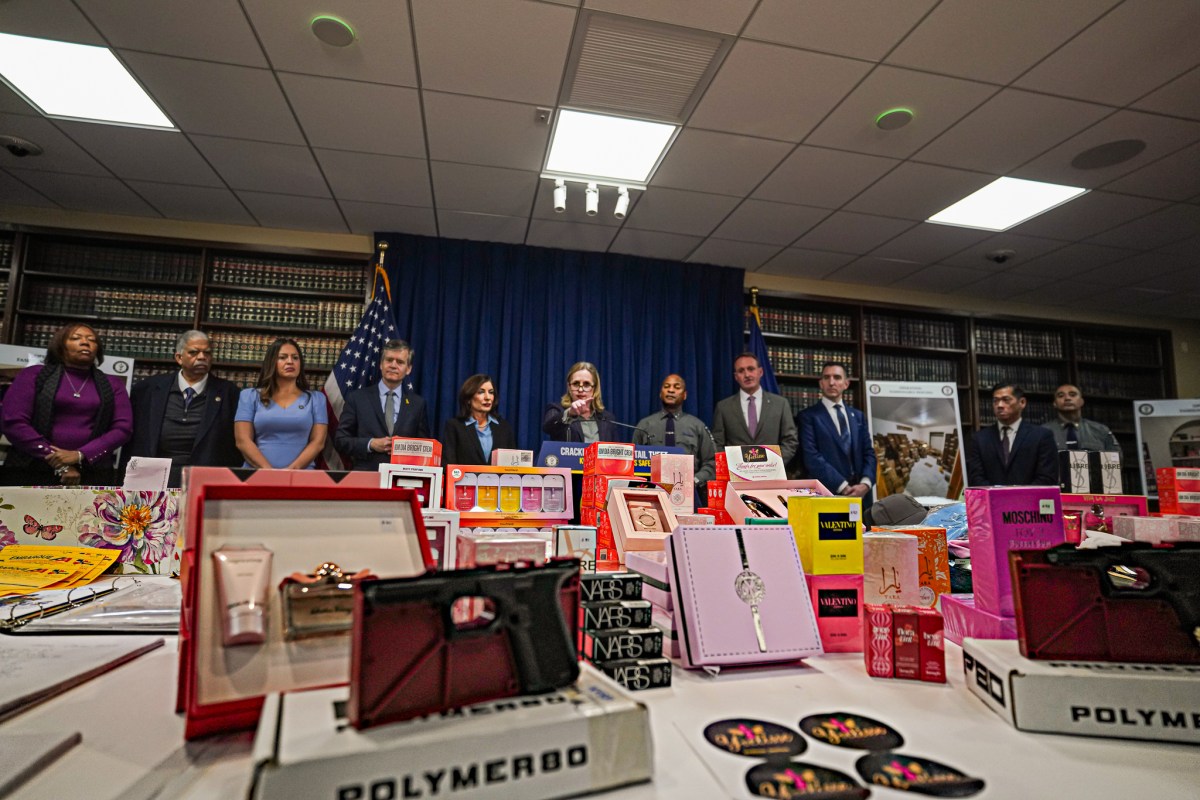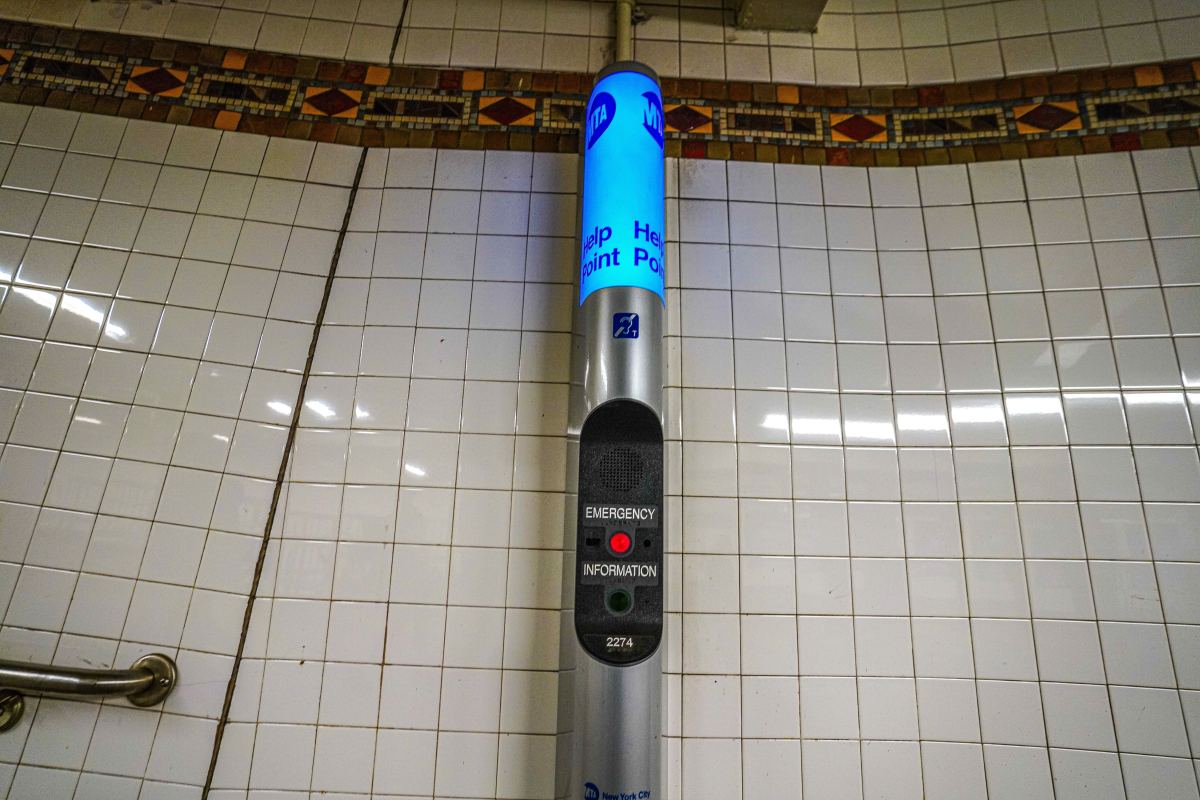HANOI (Reuters) – U.S. Secretary of State Mike Pompeo wound up a visit to Asia in Vietnam on Friday after a tour marked by his repeated calls for help for the United States in confronting security threats posed by China.
Vietnam, which also shares concern about an increasingly assertive China, was a late addition to the trip that included Sri Lanka, India, the Maldives and Indonesia.
“We look forward to continuing to work together to build on our relationship and to make the region — throughout Southeast Asia, Asia and the Indo-Pacific — safe and peaceful and prosperous,” said Pompeo, who greeted Vietnamese Prime Minister Nguyen Xuan Phuc with an elbow bump before their meeting.
Phuc said he sought “sincere cooperation” in support of a peaceful region and progress in trade and investment ties.
While there was no public mention of China on Friday, Pompeo has urged Southeast Asian countries to stand up to its bullying and to reassess business deals with its state firms.
While in Sri Lanka on Wednesday, Pompeo said the Chinese Communist Party was operating as a “predator”. In India the day before, he called for cooperation in confronting what he called Chinese threats to security and freedom in the region.
China has said the United States should stop its unprovoked accusations and attacks.
The main concern in Vietnam is China’s claims in the South China Sea.
China’s U-shaped “nine-dash line” on its maps marks a vast expanse of the sea it claims, including swathes of Vietnam’s continental shelf where it has awarded oil concessions and where Chinese and Vietnamese ships have in recent years been embroiled in months-long standoffs.
Pompeo’s trip came as Vietnam and the United States mark the 25th anniversary of the normalising of diplomatic ties. But it also came a week after Hanoi released a Vietnamese-born U.S. citizen sentenced to 12 years in jail for “attempting to overthrow the state”.
Hours before Pompeo’s arrival, Vietnam’s foreign ministry released a statement saying the man, Michael Nguyen, who returned to his home in California last week, was released for humanitarian reasons.
The statement made no reference to Nguyen’s account of his arrest and interrogation, including his claim in a news conference on Wednesday that he had been kidnapped.
Pompeo on Friday met Vietnam’s Minister of Public Security To Lam, whose office is in charge of domestic security and tracking dissidents in the communist-ruled country.
After the meeting, Pompeo said in a tweet that he and To Lam had discussed the South China Sea and Mekong region.
Bitter enemies during the U.S.-Vietnam War, Hanoi and Washington have enjoyed significantly warmer relations in recent years.
But there have some trade tensions of late, with the U.S. Trade Representative confirming in August that it was investigating whether Vietnam had been undervaluing its dong currency and harming U.S. commerce.
Prime Minister Phuc this week called on President Donald Trump to have “a more objective assessment of the reality in Vietnam” with regards to the trade imbalance.
(Reporting by James Pearson and pool reports; Writing by Ed Davies; Editing by Robert Birsel)

